Announcement
Collapse
No announcement yet.
1960s/1970s/1980s Japanese Genre Cinema - From Books and Magazine Articles (NSFW)
Collapse
X
-
Reiko Ike in Weekly Playboy July 13, 1971
A week after Onsen mimizu geisha (温泉ã¿ã¿ãšèŠ¸è€…) (1971) was released Ike appeared in Weekly Playboy in a seven page part called “What Kind of Girl is New Porno Star Reiko Ike?â€. It's mostly photos and a two page interview with mostly simple trivia like:
Playboy: What's your birth date?
Ike: May 25, 1953. I turned 18 this year. Born and raised in Tokyo.
Playboy: School?
Ike: 2nd year student at Machida High School, repeating the year but currently taking a break.
Playboy: Family?
Ike: I'm living with my mother and father, grandmother and grandmother's sister.
Playboy: Favourite sports?
Ike: Swimming
Then we get to more interesting stuff.
Playboy: How did you enter films?
Ike: I got scouted by director Norifumi Suzuki at the Aoi Heya club where I was hanging out with my friend Miki Sugimoto.
Playboy: Did you take the offer without hesitation?
Ike: I thought he was some strange geezer (変ãªã‚ªãƒƒã‚µãƒ³) so I didn't give him an immediate reply. But the next day I went to Toei headquarters and found the offer was for real, so I took it. I got my family's approval afterwards.
Playboy: Anything you've done before this film?
Ike: I've done advertisements two or three times. Ricoh camera and Subaru poster.
I find this interesting because almost none of that is true. Norifumi Suzuki revealed in his book Toei Guerilla Senki (æ±æ˜ ゲリラ戦記) (2013) that the story about the Aoi Heya club and Ike and Sugimoto being friends was entirely made up by producer Kanji Amao. Amao had conceived a PR strategy to make Ike into a star, and the two men coached Ike to tell made-up stories that would sell her image best. In reality Ike and Sugimoto had never met, and Ike was not scouted at the club. Suzuki says he actually found her via a men's magazine where he had seen her photos and got her contact info from the publisher in Tokyo. Then later Amao found Sugimoto in Kyoto where she was doing modelling. The birth date was also fabricated by Amao and Suzuki after they found out Ike was underage, and swore her never the reveal her real age by accident.
Which makes me wonder if anything at all she says here is true. Did she model for Subaru and Ricoh? Was she really in Machida High School? And what about this part:
Playboy: What's your address?
Ike: Tokyo Ota-ku, Omori 3-13-11. I won't tell you my phone number, I'll get in trouble if I do.
Surely not her real address?
Oh well, all this just adds to the fascination. I wanted to share this because this is a concrete example of what Suzuki writes about in his book (about how they made up stories to create positive publicity for Ike). The Aoi Heya story in particular persisted for decades and can be found in many film books and magazines released prior to 2013 when Suzuki finally revealed it was all made up.
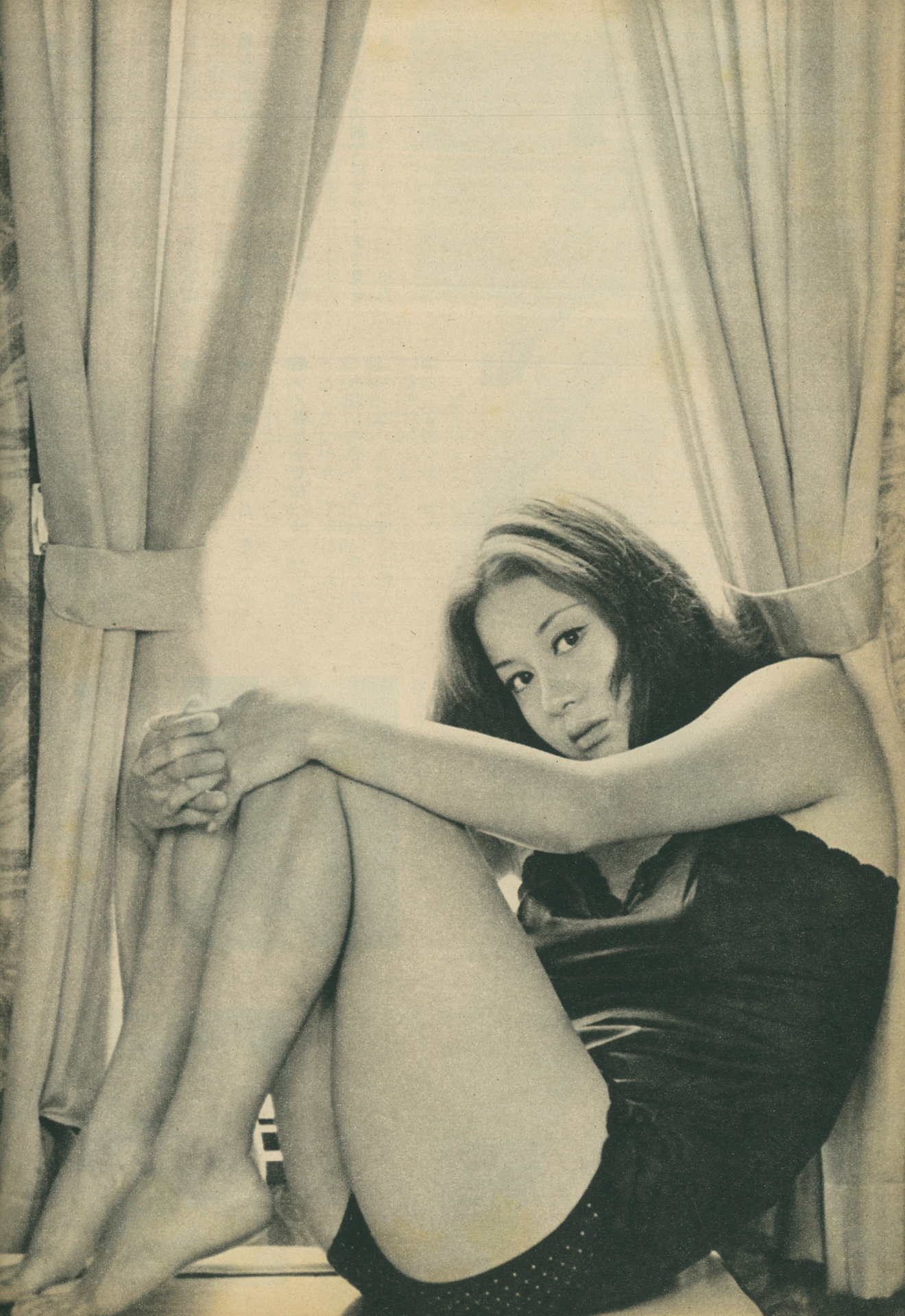
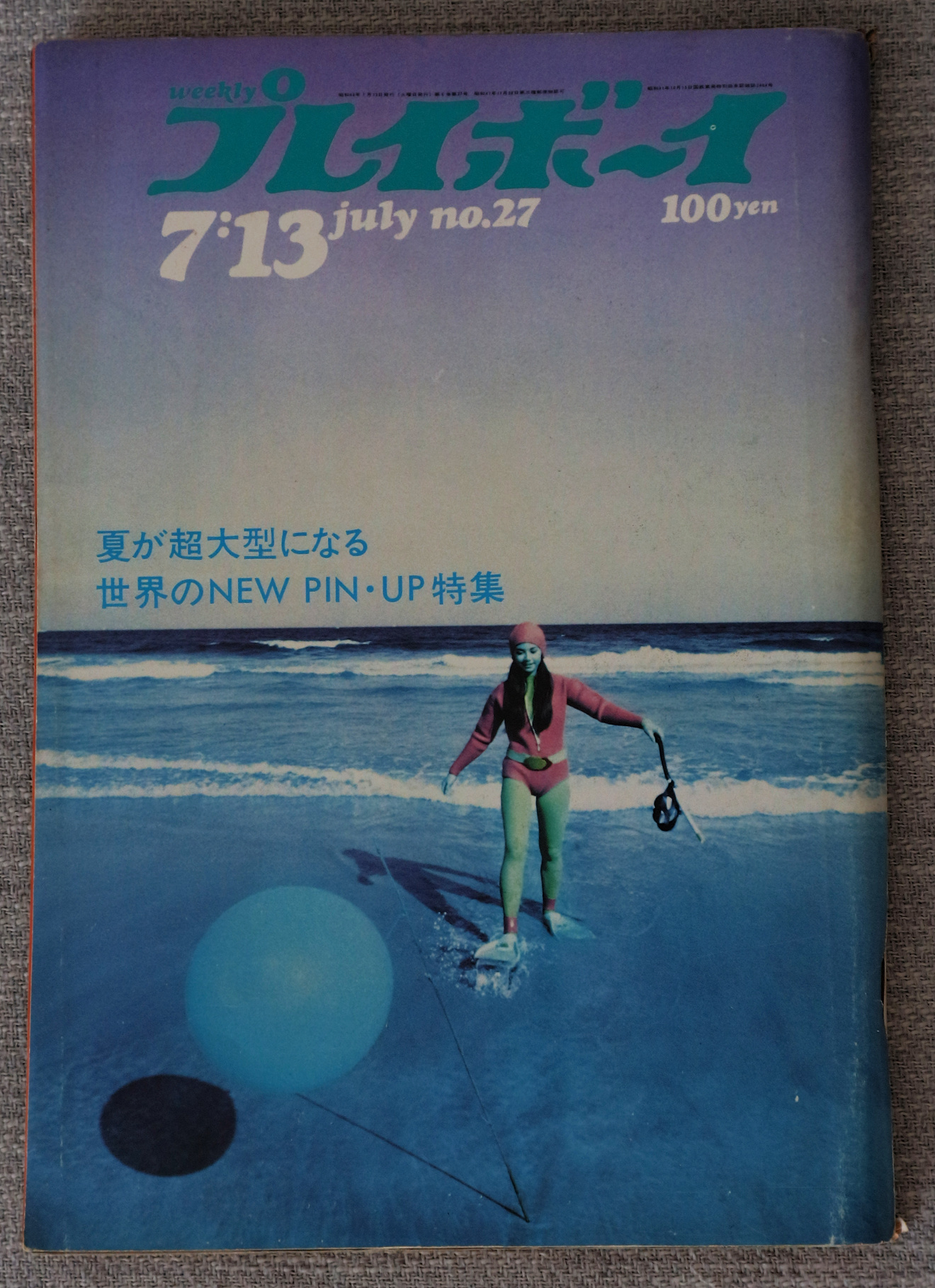 Last edited by Takuma; 07-18-2021, 12:00 AM.
Last edited by Takuma; 07-18-2021, 12:00 AM.
Leave a comment:
-
Exactly. Western directors are also (often) involved in the financing or pitching, too, and sometimes bring coin to the table, or first money.
I can totally see that you could do half a dozen or more films a year if shoots aren't too long and prepping and post- is done primarily by pother people.
The studio system ran like a factory, the opposite of indie filmmaking or even current Western studio modus operandi, which is focused on megabudget films these days, which can take three years from start to finish.
Leave a comment:
-
The studio system was certainly a big factor. Everyone knew each other from before and people didn't need to be hired, just assigned to projects by Toei (though this was a little after the studio system had come to its end in the strict sense in the late 60s; Toei kept operating largely in the same way on a contract basis till the late 70s however).Originally posted by Zaibatan View PostSo his explanation is just that he always had another script already written and ready to go by the time he finished shooting the previous project? I think that's only part of the truth of the explanation why Japanese directors can manage to be so productive. Certainly with more recent directors like Miike or Sono they have a fixed group of trusted people who handle the editing and ADR for them. In the West, directors spend months or even up to a year overseeing post-production and promotion, whereas in Japan they can just move on to doing their actual job - directing another film! I'd be surprised if it was any different with Suzuki.
That being said, if you look at the crew on Modern Porno Tale and Queen Bee's Challenge for example, almost all are different people aside Suzuki and producer Amao (and many cast members). The same is true to Girl Boss Guerilla and Women's Violent Classroom. So they didn't go on with the same crew all the time. Maybe the rest of the crew just needed more rest than Suzuki
Another reason would be simply necessity. With the double feature system there needed to be two new films every two weeks. No time to slack.
Leave a comment:
-
So his explanation is just that he always had another script already written and ready to go by the time he finished shooting the previous project? I think that's only part of the truth of the explanation why Japanese directors can manage to be so productive. Certainly with more recent directors like Miike or Sono they have a fixed group of trusted people who handle the editing and ADR for them. In the West, directors spend months or even up to a year overseeing post-production and promotion, whereas in Japan they can just move on to doing their actual job - directing another film! I'd be surprised if it was any different with Suzuki.
Leave a comment:
-
How Norifumi Suzuki Could Work So Fast?
Here are a few bits from Norifumi Suzuki’s book Toei guerilla senki (東映ゲリラ戦記) (2013) where he discusses how he managed to make so many movies each year (e.g. completing 7 movies in 1972).
“We started filming Girl Boss Blues: Queen Bee's Challenge (女番長ブルース 牝蜂の挑戦) (1972) 10 days after completing Modern Porno Tale: Inherited Sex Mania (現代ポルノ伝 先天性淫婦) (1971). Such a swift schedule was possible because I had already told assistant director Takayuki Minagawa to start writing the screenplay when I was still filming Modern Porno Tale. I had also started planning on my next film already during that time.” * (p.45)
“Terrifying Girls’ High School: Women’s Violent Classroom (恐怖女子高校 女暴力教室) (1972) started filming as soon as Girl Boss Guerilla (女番長ゲリラ) (1972) had been completed. This was possible because screenwriters Masahiro Kakefuda and Ikuo Sekimoto had started writing the screenplay already when we were still filming Girl Boss Guerilla.” ** (p.81).
“The Lustful Shogun and His 21 Concubines (エロ将軍と二十一人の愛妾) (1972) was released as a double feature with Delinquent Boss: Pierced to the Bone and Sucked Dry (不良番長 骨までしゃぶれ) (1972) on Dec. 2, 1972. I had been running between two studio rooms since the end of November to make preparations for Girl Boss Revenge (女番長) (1973). Girl Boss Revenge had been set for a Jan. 13, 1973 release as the B-film for Battles without Honor and Humanity (仁義なき戦い)”. (p.98)
*
Modern Porno Tale: Inherited Sex Mania: Dec. 17, 1971 release
Girl Boss Blues: Queen Bee's Challenge: Feb 3, 1972 release
**
Girl Boss Guerilla: Aug. 12, 1972 release
Terrifying Girls' High School: Women's Violent Classroom: Sep. 29, 1972 release
Still: The Lustful Shogun and His 21 Concubines
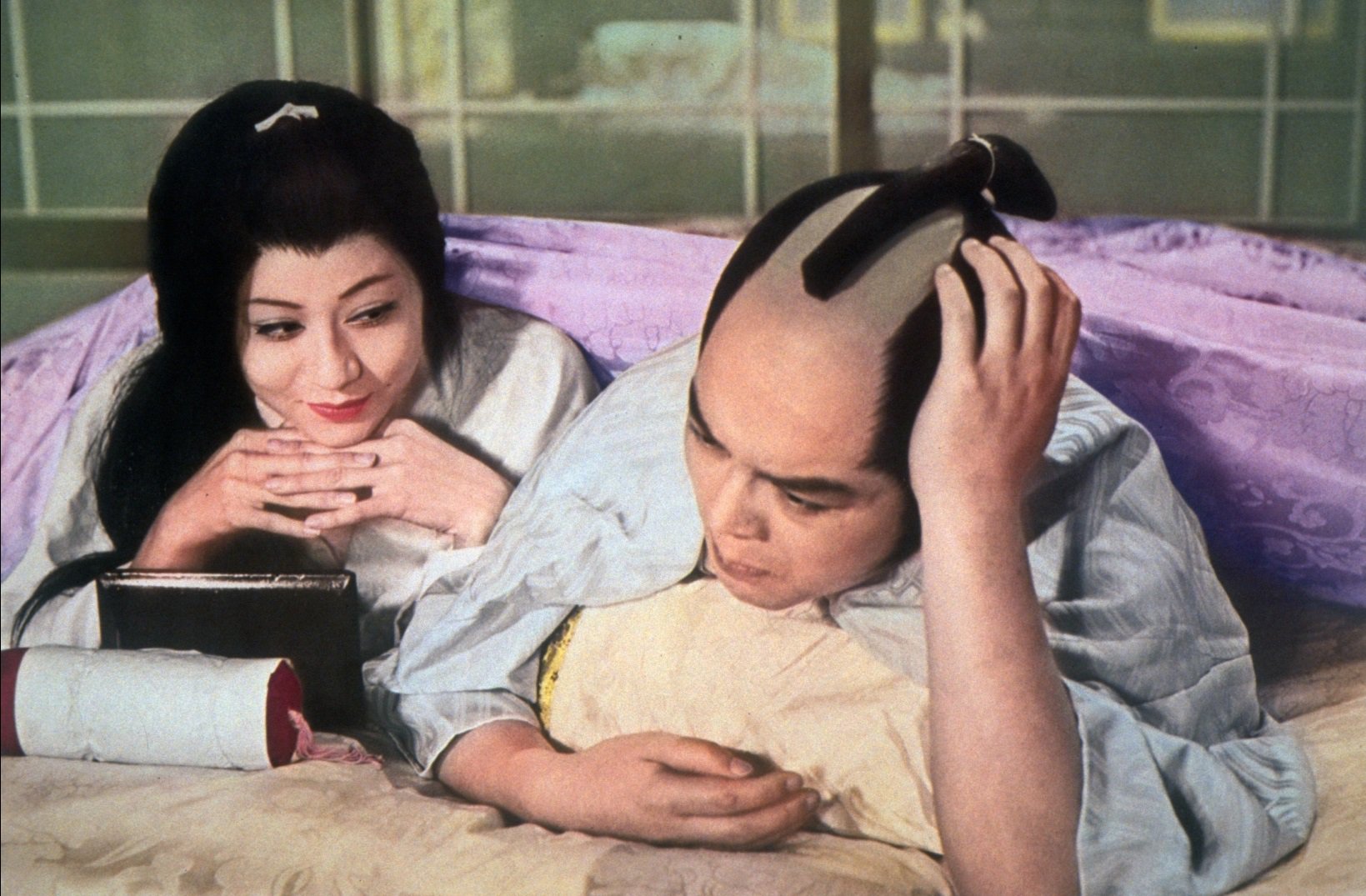 Last edited by Takuma; 02-17-2022, 11:58 AM.
Last edited by Takuma; 02-17-2022, 11:58 AM.
Leave a comment:
-
I idea of going to a Toei theater every other week to see a new double bill sounds really cool.
Leave a comment:
-
Thanks so much for this. I'm fascinated with Toei and especially Suzuki's work.
Leave a comment:
-
Norifumi Suzuki recalls the turmoil at Toei in 1972 in his book Toei guerilla senki (東映ゲリラ戦記) (2013) (p. 91-94). He released six films that year, and completed a seventh one for a later release. Abbreviated and completed with my notes in brackets []. Translation inaccuracies possible.
“The year was 1972.”
“Junko Fuji retired to get married in March. Tomisaburo Wakayama joined his brother’s company Katsu Pro. Rumours about box office ace Ken Takakura wanting to leave Toei would not cease. The Brutal Tales of Chivalry series came to an end. Toei’s other top star Koji Tsuruta was an old man. Yakuza cinema, supported by the strong [“Two Top”] star system, had suddenly started to wane.”
“At the same time audiences had started to feel that yakuza films had lost their vitality. That the “ninkyo ideology”, with its romanticised concepts of duty, humanity and pseudo family, was distanced from reality, and nothing but a fabrication. “
“The decline of yakuza films hit Toei’s double bill system* hard. To make up for the shrinking number of yakuza films, the demand for producer Amao’s Porno Line films surged, and my annual workload reached abnormal numbers. “
* [Toei’s double feature business model required them to have two new films ready every two weeks. If not, their own and affiliated theatres playing exclusively Toei movies would run out of new films to play].
Attached still: wrap-up photo for Terrifying Girls' High School: Women's Violent Classroom (恐怖女子高校 女暴力教室), one of the seven films Suzuki completed in 1972.
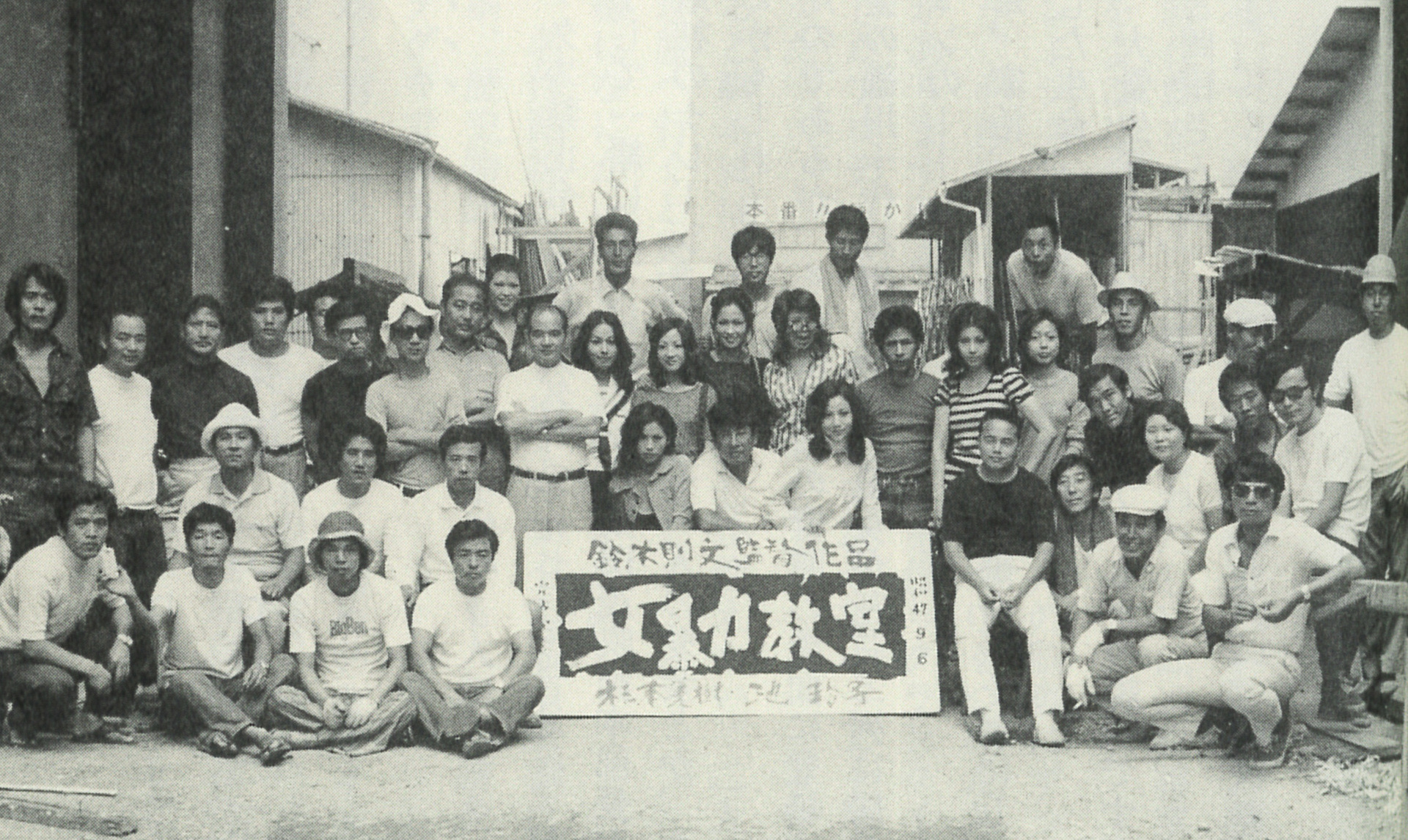 Last edited by Takuma; 02-17-2022, 01:15 PM.
Last edited by Takuma; 02-17-2022, 01:15 PM.
Leave a comment:
-
That's some fascinating insight there.Originally posted by Takuma View Post“As we started filming Girl Boss Guerilla (女番長ゲリラ) (1972), I noticed a strange difference in Sugimoto's way of pronunciation, and asked what's wrong. Turned out she was trying to improve her dialogue delivery because senior actors had told her she still sounds all monotonous despite having become a lead actress. “The way you were before was fineâ€, I said. “Monotonous and blunt is your thing. Uncommunicative, unsocial and combative, those are your biggest charms as an actress. Don't forget that. “â€
Leave a comment:
-
Monotonous Miki
It’s been a while since I’ve posted anything from Norifumi Suzuki’s book Toei guerilla senki (東映ゲリラ戦記) (2013), so here’s a brief one (p.81-82). This is a continuation to my earlier post about Miki Sugimoto becoming a leading lady after Reiko Ike quit Toei in spring 1972, only for Ike to come back to Toei some months later and join Girl Boss Guerilla on the last moment. Anyway, summarized, with possible translation inaccuracies:
“As we started filming Girl Boss Guerilla (女番長ゲリラ) (1972), I noticed a strange difference in Sugimoto’s way of pronunciation, and asked what’s wrong. Turned out she was trying to improve her dialogue delivery because senior actors had told her she still sounds all monotonous despite having become a lead actress. “The way you were before was fine”, I said. “Monotonous and blunt is your thing. Uncommunicative, unsocial and combative, those are your biggest charms as an actress. Don’t forget that. “”
Image: Still from Girl Boss Guerilla (女番長ゲリラ).
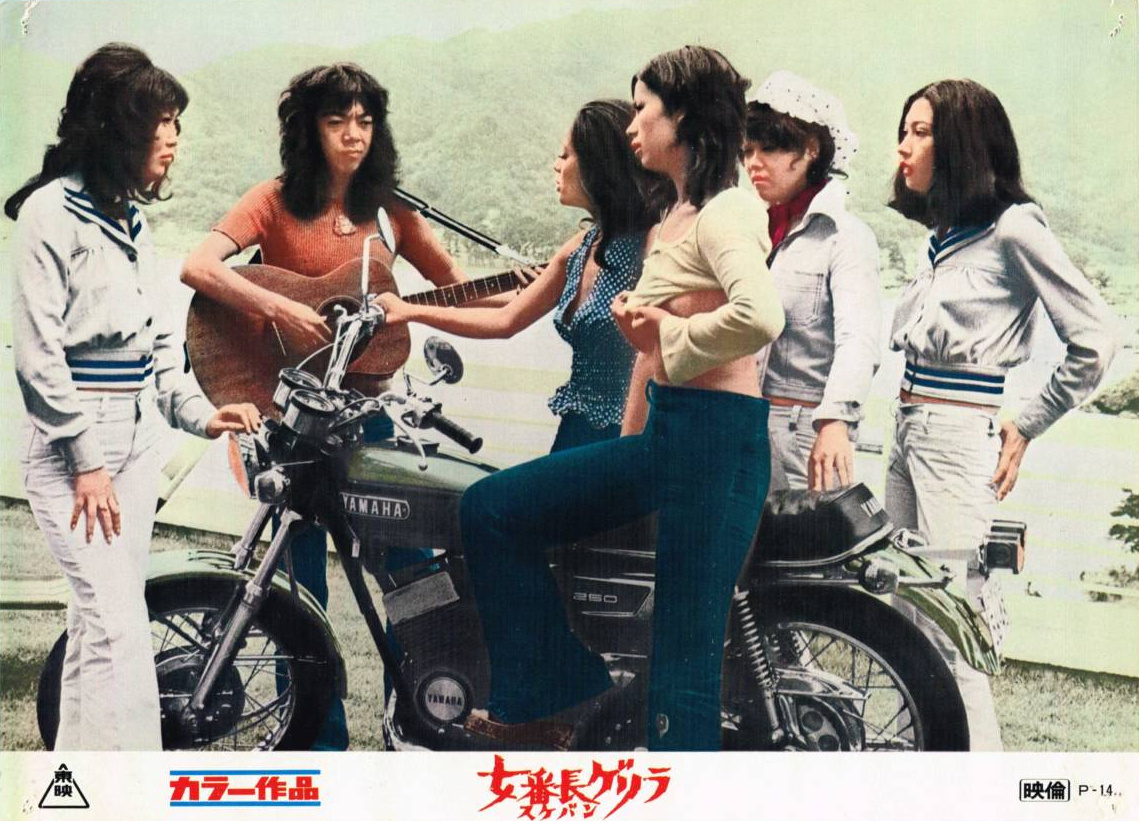 Last edited by Takuma; 02-17-2022, 01:16 PM.
Last edited by Takuma; 02-17-2022, 01:16 PM.
Leave a comment:
-
Reiko Ike Returns to Toei
[for background, please see my older posts “Humphrey Bogart Stood in Silence” and “Reiko Ike Quits Toei: The Aftermath”]
Director Norifumi Suzuki explains in his book Toei guerilla senki (東映ゲリラ戦記) (2013) (p. 78-79, 82) that he was in the middle of Girl Boss Guerilla (女番長ゲリラ)’s pre-production when producer Amao returned from Tokyo with two pieces of big news.
The 1st one was that their new leading lady Miki Sugimoto had been well received by both the media and the [Toei] Tokyo head office.
The 2nd piece of news was that Reiko Ike wanted to make a comeback to Toei Porno. Amao said:
“Ike had come with her mother to apologize for their rudeness [for suddenly quitting Toei earlier in 1972], and pleaded me to use her again in a Toei film. I intended to reject her right away. I’m a producer and have my pride and stubbornness. I was about to tell her that I have no use for her at all.”
“However, as I thought about it more carefully, I realized wouldn’t it be better to have two stars instead of one? I decided to put aside my personal feelings as I recalled the words of a veteran Kyoto reporter, who had said “Toei’s enduring success in the film industry was due to the studio’s adoption of a ‘Two Top Star System” [this is a reference to Koji Tsuruta and Ken Takakura, whose rivalry in the ninkyo genre had electrified yakuza films and excited the audiences by providing not one, but two rival superstars]. Ike had not lost her market value yet. Her name should have a tremendous positive impact in the advertising of Sugimoto’s third starring film.”
Hence, screenwriter and assistant director Takayuki Minagawa was told to quickly type Girl Boss Guerilla into a co-starring vehicle for Sugimoto and Ike.
Toei’s advertising department took full advantage of the new two-star situation, placing a “Are you a Reiko Ike man or are you are Miki Sugimoto man?” article in a men’s magazine.
 Last edited by Takuma; 02-17-2022, 01:17 PM.
Last edited by Takuma; 02-17-2022, 01:17 PM.
Leave a comment:
-
Thank you so much, Takuma, for this rare behind the scenes pic from STAR OF DAVID. What a great story about the logo.
Leave a comment:
Leave a comment: